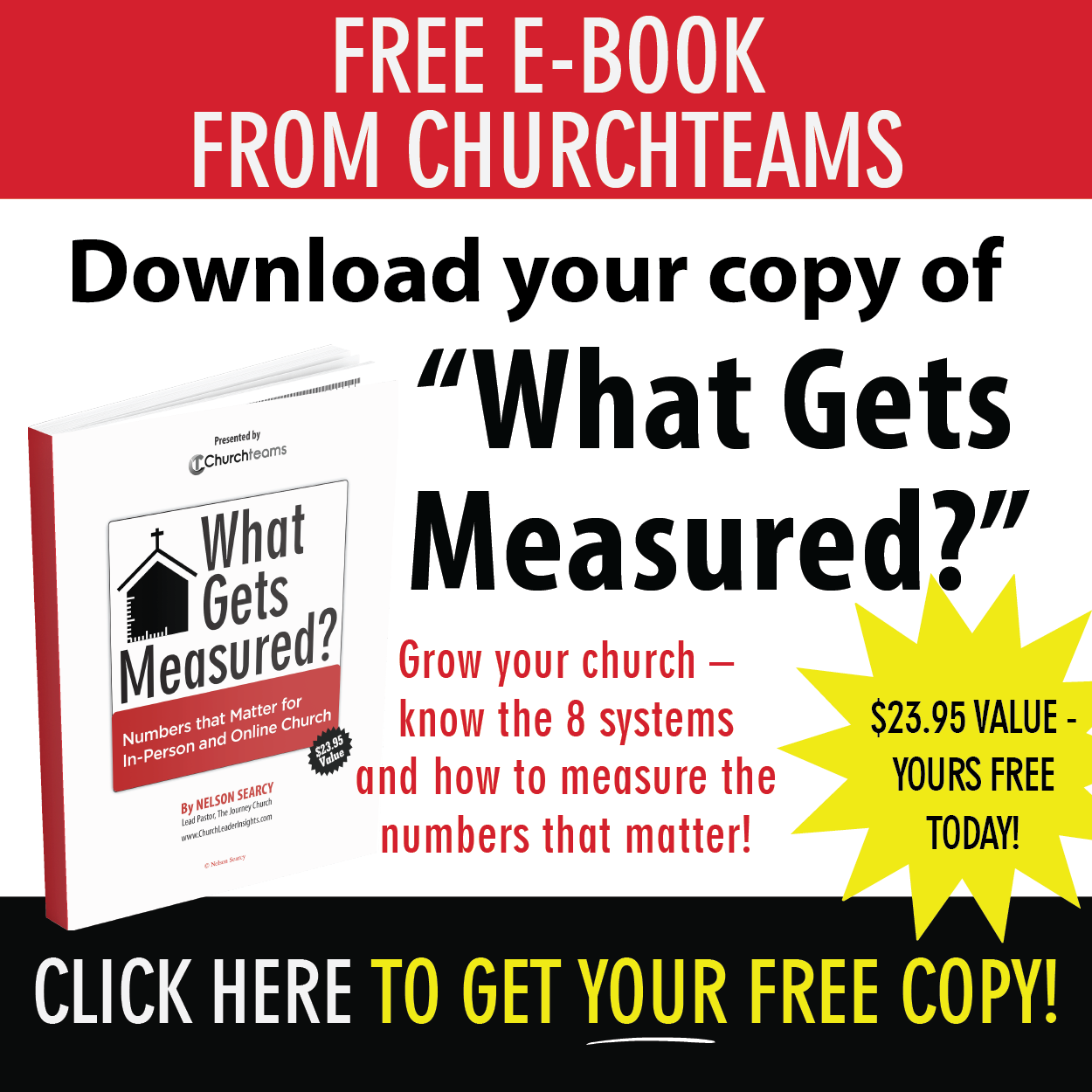 The French writer, poet, and aviation pioneer, Antoine de Saint-Exupery famously said, "A goal without a plan is just a wish."
The French writer, poet, and aviation pioneer, Antoine de Saint-Exupery famously said, "A goal without a plan is just a wish."
Easter was just a couple of weeks ago. Hopefully, your church saw lots of visitors and twice-a-year attenders. How has your follow-up with these people gone? Are you working the plan or was your goal for them to return really just a wish?
As church software developers, we have invested substantial time into thinking about how to help churches manage the processes involved in making disciples and building teams. Here are some ideas we've learned along the way that might be helpful as you evaluate your Easter follow-up, and plan for summer event follow-up.
1. Bump up the priority of input. The idea that the output of a system is only as good as the input is such an obvious maxim that it is often overlooked. It is natural to focus on the promotion of and planning for an event like Easter, but when you do this, follow-up gets relegated to a third or even fourth level priority.
What if capturing information for ongoing follow up was bumped up to the #1 priority for your event? If that was the case, you would think of promotion and even the event itself through the lens of connecting with people to establish an ongoing relationship.
For instance, the mailer you send might include a link to a family needs survey. Or a song transition might identify the longing in each of us for something more and encourage people to respond to a "Life Hacks" question on their paper or digital connect card.
 2. Go where people are. If you want people to respond digitally, we suggest having them use an app they already know and have on their phone rather than asking them to download a new or different app. This could be entering a URL in their browser. It could be sending an email. Or, it could be texting a keyword. Spend your time talking about "why" they should respond rather than promoting "how."
2. Go where people are. If you want people to respond digitally, we suggest having them use an app they already know and have on their phone rather than asking them to download a new or different app. This could be entering a URL in their browser. It could be sending an email. Or, it could be texting a keyword. Spend your time talking about "why" they should respond rather than promoting "how."
3. Show people how much you care. The old saying, "people don't care how much you know until they know how much you care," applies to our service or event calls to action (aka connection cards). There's no problem with responses like "I would like more information about this church" or "I would like to talk to a pastor." These are great for people who ready for those steps. But, what about the person who has hurts, habits or hangups related to church? They need other options like "I would like more information on how to parent teenagers," or "How can I know the Bible is really true?"
Perhaps a "Life Hacks" dropdown with options like these could be added to your connection card. Then provide a workflow over the next 6 weeks with short, "best of" ideas, and teaching on these topics.
You have the content. Curate it and use Churchteams email, text and content page templates in workflows to create an always available, automated, follow up system built around those needs. These can build trust with people and open them up to further conversations.
4. Work as a team. Automation is important, but a personal call to those who give their phone number multiplies the impact of emails, texts, and even hand-written notes.
A sales professional makes up to 30 calls per day. A support professional may take as many as 50 calls in a day. Businesses use software systems like Salesforce and Hubspot to track and manage these calls. Every team member is trained on and expected to use the same tool. As a result, they can see previous conversation notes and pick up where other team members left off.
Contrast that with the system most churches use to make follow-up calls and contacts. You probably know what that looks like.
Churchteams uses notes to automate the process of making assignments, sending reminders, and tracking conversations. It's easy to use, and it empowers your pastors and staff to work more effectively as a team.
Your next season of outreach services and events is coming up: Mother's Day, VBS, Father's Day, Youth Camp, 4th of July, and more. As you start planning these, consider some of the ideas above.
Start trying them out and learn as you go. By Christmas, you will have worked out the kinks and be amazed at how much better your follow-up is.



